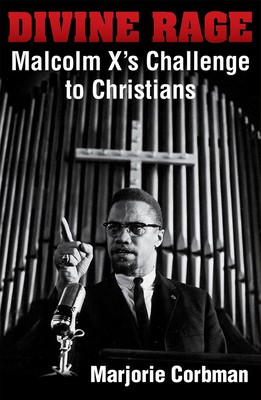
- We will send in 10–14 business days.
- Author: Marjorie Corbman
- Publisher: ORBIS BOOKS
- ISBN-10: 1626985081
- ISBN-13: 9781626985087
- Format: 13.6 x 20.8 x 1.8 cm, minkšti viršeliai
- Language: English
- SAVE -10% with code: EXTRA
Divine Rage: Malcolm X's Challenge to Twentieth Century Christians (e-book) (used book) | bookbook.eu
Reviews
Description
Malcolm X asked: did Christianity have nothing more to offer Black Americans than spiritual "novocaine," enabling them to suffer peacefully? He gave voice to the frustration many Black Americans felt over the expectation that, unlike white Americans, Black people were expected to respond to violence with "superhuman" calm and forgiveness.
Malcolm's apocalyptic vision--in which the world's oppressed would join together to make God's righteous judgment on racism, colonialism, and all forms of slavery--galvanized, outraged, and troubled many. Divine Rage shows how Christian activists and theologians wrestled with it, including Rev. Albert B. Cleage, Jr., a Congregationalist minister who based his community, the Shrine of the Black Madonna, on Malcolm's message; a young scholar, James Cone, inspired to develop a Christian theology of Black Power; Gwendolyn Zoharah Simmons, a Student Nonviolent Coordinating Committee (SNCC) leader who embraced Islam and pushed SNCC to espouse a more radical Black consciousness; Thomas Merton, a Catholic monk and public figure who struggled with his relationship to Catholic peace activists and the Black Power movement; and Marsha P. Johnson and Sylvia Rivera, queer activists of color who moved fluidly between the revolutionary language of Black Power and a religious practice grounded in the saints.
EXTRA 10 % discount with code: EXTRA
The promotion ends in 21d.22:01:26
The discount code is valid when purchasing from 10 €. Discounts do not stack.
- Author: Marjorie Corbman
- Publisher: ORBIS BOOKS
- ISBN-10: 1626985081
- ISBN-13: 9781626985087
- Format: 13.6 x 20.8 x 1.8 cm, minkšti viršeliai
- Language: English English
Malcolm X asked: did Christianity have nothing more to offer Black Americans than spiritual "novocaine," enabling them to suffer peacefully? He gave voice to the frustration many Black Americans felt over the expectation that, unlike white Americans, Black people were expected to respond to violence with "superhuman" calm and forgiveness.
Malcolm's apocalyptic vision--in which the world's oppressed would join together to make God's righteous judgment on racism, colonialism, and all forms of slavery--galvanized, outraged, and troubled many. Divine Rage shows how Christian activists and theologians wrestled with it, including Rev. Albert B. Cleage, Jr., a Congregationalist minister who based his community, the Shrine of the Black Madonna, on Malcolm's message; a young scholar, James Cone, inspired to develop a Christian theology of Black Power; Gwendolyn Zoharah Simmons, a Student Nonviolent Coordinating Committee (SNCC) leader who embraced Islam and pushed SNCC to espouse a more radical Black consciousness; Thomas Merton, a Catholic monk and public figure who struggled with his relationship to Catholic peace activists and the Black Power movement; and Marsha P. Johnson and Sylvia Rivera, queer activists of color who moved fluidly between the revolutionary language of Black Power and a religious practice grounded in the saints.


Reviews